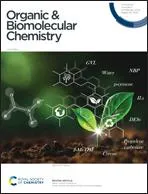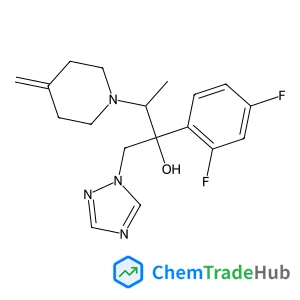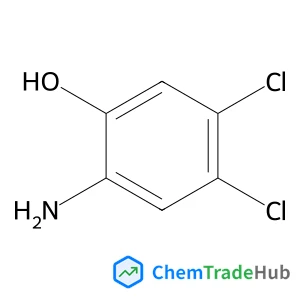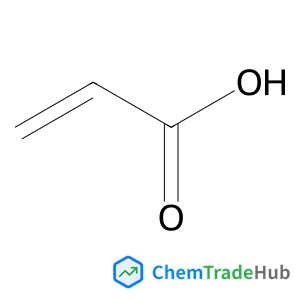Support studies toward the hicksoane alkaloids reveal cascade reactions of a (tryptophanamido)methylglycinate
文献情報
Stephanie Lee, Tilo Söhnel, Jonathan Sperry
Herein we report unanticipated results that emerged from a synthetic study targeting the unique triazocane present in the hicksoane alkaloids. An initial strategy focused on the cyclisation-ring expansion of a 3-(tryptophyl)imidazolidin-4-one failed due to the high reactivity of the imide unit; passing a methanolic solution of this compound through a weakly basic ion exchange resin led to methanolysis to form a (tryptophanamido)methylglycinate. Attempted lactamisation of this (tryptophanamido)methylglycinate led to the formation of a (tryptophyl)imidazolidin-4-one, a rare imidazopyrido[3,4-b]indolone and a β-carboline. Control reactions informed a mechanistic rationale for these cascade processes.
関連文献
IF 6.367
Tessellation strategy for the interfacial synthesis of an anthracene-based 2D polymer via [4+4]-photocycloadditionIF 6.222
Sugar ketals as a platform molecule to overcome the limitation of converting biomass into green-hydrocarbons in a typical refineryIF 6.367
Carbon and carbon composites obtained using deep eutectic solvents and aqueous dilutions thereofIF 6.222
Efficient one-pot synthesis of alkyl levulinate from xylose with an integrated dehydration/transfer-hydrogenation/alcoholysis processIF 6.367
Coexisting order and disorder within a common 40-residue amyloid-β fibril structure in Alzheimer's disease brain tissueIF 6.222
Engineering of electrodeposited binder-free organic-nickel hydroxide based nanohybrids for energy storage and electrocatalytic alkaline water splittingIF 6.367
From zinco(ii) arsaketenes to silylene-stabilised zinco arsinidene complexesIF 6.222
From Douglas fir to renewable H2-enriched syngas via ex situ catalytic pyrolysis over metal nanoparticles–nanocellulose derived carbon catalystsIF 6.367
Effective utilisation of waste cooking oil in a single-cylinder diesel engine using alumina nanoparticlesIF 6.367
掲載誌
Organic & Biomolecular Chemistry

Organic & Biomolecular Chemistry (OBC) publishes original and high impact research and reviews in organic chemistry. We welcome research that shows new or significantly improved protocols or methodologies in total synthesis, synthetic methodology or physical and theoretical organic chemistry as well as research that shows a significant advance in the organic chemistry or molecular design aspects of chemical biology, catalysis, supramolecular and macromolecular chemistry, theoretical chemistry, mechanism-oriented physical organic chemistry, medicinal chemistry or natural products. Articles published in the journal should report new work which makes a highly-significant impact in the field. Routine and incremental work is generally not suitable for publication in the journal. More details about key areas of our scope are below. In all cases authors should include in their article clear rationale for why their research has been carried out.
おすすめサプライヤー
 Bureau Veritas Consumer Products Germany GmbH
Bureau Veritas Consumer Products Germany GmbH 建德市永固塑料設備厂
建德市永固塑料設備厂 重庆宸城医药有限公司
重庆宸城医药有限公司 Allweiler 事業部門 Exzenterschneckenpumpen
Allweiler 事業部門 Exzenterschneckenpumpen テスアップ
テスアップ 佛山市ノ銀貴金属材料有限公司
佛山市ノ銀貴金属材料有限公司 弘創净油設備公司
弘創净油設備公司 フリードリヒ・テッソーン GmbH
フリードリヒ・テッソーン GmbH 深圳三力高科技有限公司
深圳三力高科技有限公司 軒諾科(泰興)薬物開発有限公司
軒諾科(泰興)薬物開発有限公司










![25553-77-9 - 1-[2-(1,3-Dioxolan-2-yl)ethyl]piperazine 25553-77-9 - 1-[2-(1,3-Dioxolan-2-yl)ethyl]piperazine](/structs/255/25553-77-9-5274.webp)


![315234-49-2 - 1-[(Tert-butoxy)carbonyl]-2-(prop-2-en-1-yl)pyrrolidine-2-carboxylic acid 315234-49-2 - 1-[(Tert-butoxy)carbonyl]-2-(prop-2-en-1-yl)pyrrolidine-2-carboxylic acid](/structs/315/315234-49-2-fe31.webp)
